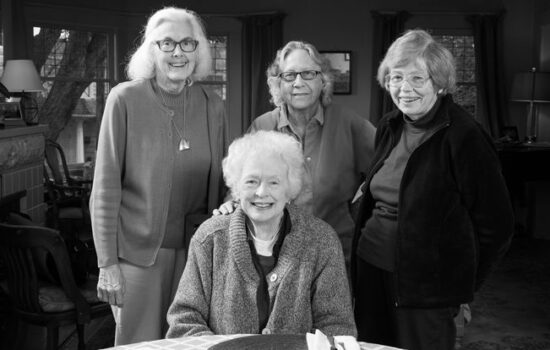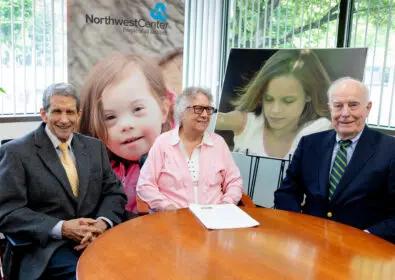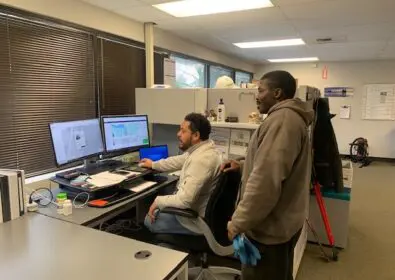It was 1971, and Chapman was on the phone with the latest in a string of Seattle school officials she’d had to fight for years, just trying to make it possible for kids with developmental disabilities, like her son Coolidge, to get an education.
“I was talking to the Superintendent of the Seattle Public Schools,” she remembers. “The Special Ed director was keeping out kids like Coolidge. So I called his boss. I was very frustrated. He had a million excuses: we don’t have any money, we don’t have any mandate from the state, and on and on. I was on my kitchen phone, and I just kicked a hole in the wall.”
In the early 1970s, Chapman was part of the small group who tirelessly wrote and lobbied for legislation that changed national laws for people with disabilities.
In the mid-to-late 1970s, she served on the committee to write the rules and regulations for how the newly passed House Bill 90 would be implemented, and continued to lobby for the rights of people with developmental disabilities.
And through it all, she managed to get her son Coolidge, born in 1961, into every education program she could find. Today, she speaks glowingly of one group in particular.
“The Seattle Parks Department is the most wondrous organization,” she says. “They will serve anybody with any disability without discrimination. When Coolidge was about 2, somehow I got connected with the swimming program at Green Lake. And so the Parks Department knew Coolidge for many years.”
At the same time, Coolidge was attending the Spastic Children’s Pre-School, but was “large for his age and hyperactive,” Chapman says. In an interview with Susan Schwartzenberg for the book Becoming Citizens: Family Life and the Politics of Disability (University of Washington Press, 2005), she remembers that particular struggle:
“After two years, the preschool told us they could only keep him for a few more months. They advised us to get him on a waiting list for Buckley School, but this was a state institution and my husband and I were unwilling to do this. We took turns caregiving. My husband used to take Coolidge for a two-hour drive every night to visit the waterfront. He seemed to enjoy the ships and industrial activities.”
The preschool kept Coolidge until he was 5 “as a favor to me,” she says. It was then Chapman had her first run-in with the then-Special Ed Director of Seattle Public Schools. “He took one look at Coolidge and said, ‘No. We can’t serve him,’” she remembers. “I was very concerned about finding another program. The Parks Department recommended Northwest Center for the Retarded, which had just started up a year earlier.”
Coolidge enrolled in Northwest Center’s Specialized Training Program, which was run in conjunction with the Parks Department, where children and adults learned appropriate classroom and work behaviors. “It had all the kids that had been denied services from every other agency,” she says. She recounts how the head teacher was trained to instruct students using positive reinforcement, an approach that was progressive at the time, but also referred to as an “M&M economy.”
“Back then, that was one of the methods,” Chapman says. “If you could sit still for 30 seconds or whatever the period of time, you got an M&M. That was your reward. And then you would sit still for a little bit longer and a little bit longer and a little bit longer.
“This didn’t work for all of the people in the Specialized Training Program, but for Coolidge, it was like a miracle,” she says. “They trained him to sit still long enough to learn. They trained him to read and to write and do a little bit of math.”
In Becoming Citizens, Chapman says of the method, “It’s now laughed at, but I couldn’t complain, the parents saw results in kids they were told couldn’t learn anything. This program started a revolution. We learned that our children could learn.”
Coolidge is now in his early 50s, and still a large presence at 6’6” tall. One day this past winter, at the home he shares with his mother, a few Northwest Center founders got together to reminisce. Coolidge was keenly interested in the equipment belonging to the photographer hired to document the event. After chatting briefly with the women around the table, all of whom he’s known since 1965, he took off to catch a bus to an appointment. Today, the boy who was once rejected by local public schools is a man who easily navigates the city of Seattle on his own.



